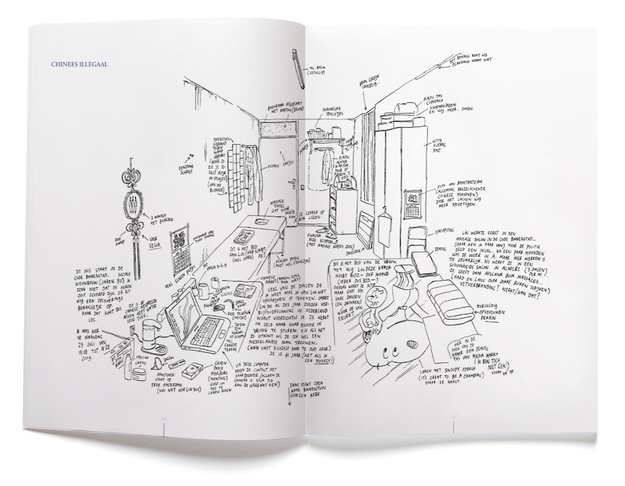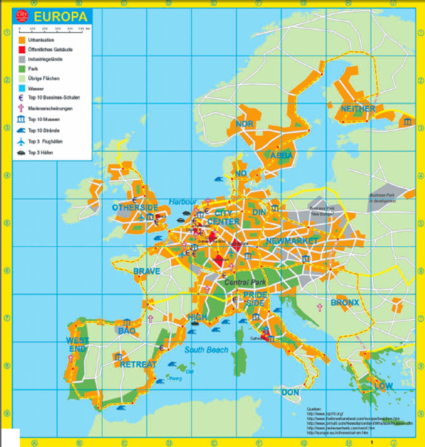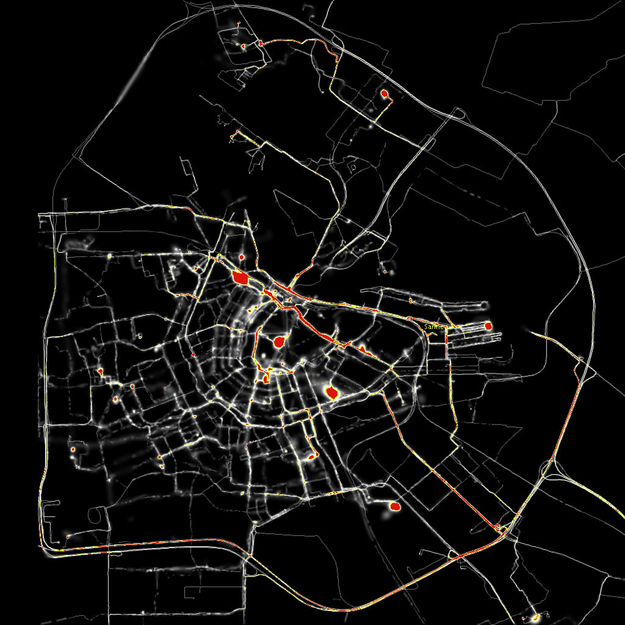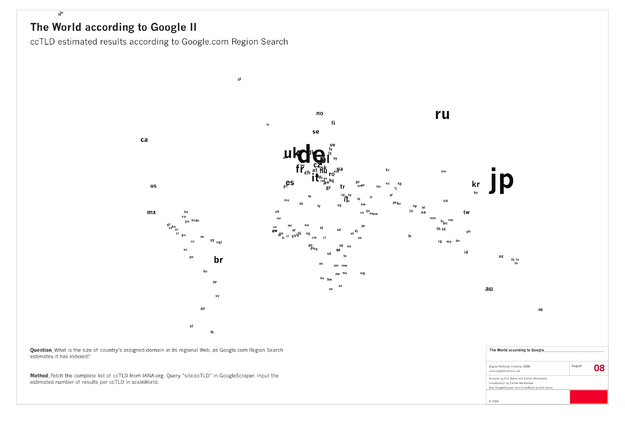Ignite Amsterdam
Because I get either bored or claustrophobic at lectures rather quickly when they are not totally awesome (which is pretty rare), I was happy to be served with new stuff to think or laugh about every five minutes or so, without the usual blah blah, circling around the really important things to be said and never ending silences when you almost hear the audience think about what question would be conceived of as truly being ‘interesting’ (pardon the cynicism). Perhaps to make it even more dynamic, a voting system could be erected, which adds another minute to the presentation at a certain threshold of positive votes, or when its too low, the contrary, pressing the lecturers do perform at their very best. Because once you go into populist and 'fast-food' lecturing, better do it right straight away, make it into a ridiculous circus: the bicycle track is already there! (pardon the sarcasm)
Chinees illegaal by Jan Rothuizen - Een prent uit Jan Rothuizens De Zachte Atlas van Amsterdam.
European Central Park by Theo Deutinger - European Central Park, by Theo Deutinger of TD Architects.

The speakers
The speakers included artists, designers, architects and hackers. Kristin Maurer presented her SHIELDS and SHELTER project. She described her own interest as ‘phobia driven design’, as dealing with ‘architectural anxiety.’ Another architect was Theo Deutinger, who envisions Europe as one giant city, and the Alps as a central park. Hedwig Heinsman represented DUS Architects, and explained their bottom-up approach to postmodernist urban planning.
And the field research continues. isme showed the result of a three-month travel in former Yugoslavia, which included a catalogue of benches where people can meet. Mark Belinsky, founder of Digital Democracy, talked about human rights abuses in Burma, the power of open data, and why we should teach kids to hack. Melle Smets stayed closer to home, and uncovered the perils and pleasures of the Dutch highway. Richard Vijgen revealed the start of an ongoing project concerning the Pentecostal Church. Jan Rothuizen, Marjolijn Boterenbrood and Esther Polak showed various wonderful mapping publications, and Renate Zentschnig and Sarah van Sonsbeeck discussed sound, silence and noise. Lino Hellings represented artist agency P.A.P.A., while Anne Helmond and Esther Weltevrede were ambassadors of Digital Methods Initiative. Wilfried was the only one who seemed to ask questions on a fairly basic level, or at least on a different level, and if I understood it, tried to analyze the idea of 'mapping' within a broader ‘existential’ perspective.
Jan Rothuizen presenting at Mediamatic, Ignite Amsterdam 9 July 2010
Mark Berlinsky presenting at Mediamatic, Ignite Amsterdam 9 July 2010
Theo Deutinger presenting at Mediamatic, Ignite Amsterdam 9 July 2010
Map Fest 2010: A retrospect
A lot of questions popped up in my mind these last three days. Why is mapping important? Why should we map for change or clarity? Why is it something artists feel they have something to say about, is there a perspective they all share, i.e. what must be presupposed when mapping is to be thought of as a relevant part of the artistic field? Traditionally, most maps have a strictly instrumental or navigational value. Art has occasionally made the lack of this value its raison d'être. The fetishization of the useless in an otherwise commodified world. Luckily this modernist or romanticist paradigm that spreads far into the 20th century, is less persistent in the projects I have seen. They do not so much reject the instrumentalist aspect of representing and controlling the world, but try to find different models and strategies to recapture their conditions of living and self-representation. Maybe the theme could have been a bit more specific within the very broad field of 'mapping', trying to let the artists react on a certain viewpoint, or something of the kind, instead of 'just' presenting their own projects in isolation, which was in itself quite inspiring.
One cubic meter of broken silence - Sarah van Sonsbeeck, 2009

More information
Map Fest 2010 took place on July 6, 8 and 9 at Mediamatic Bank. The first Ignite Amsterdam was a success. Ignite nights will be held at Mediamatic Bank every month.
For a more in depth review of Ignite Amsterdam #1, visit this page.
Read about Map Fest evening 1 (Mapping for Change) here.
Read about Map Fest evening 2 (Mapping for Clarity) here.









